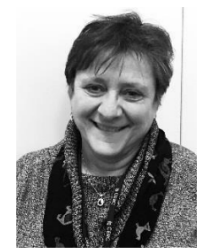Einstein Adds Curriculum on Adults with Intellectual and Developmental Disabilities (NY UCEDD)
March 20, 2019

|
Thanks to funding from the American Academy of Developmental Medicine and Dentistry (AADMD), The Rose F Kennedy UCEDD at Albert Einstein College of Medicine is developing a special curriculum for medical students geared to treating adults with IDD. The grant, part of the AADMD's National Curriculum Initiative in Developmental Medicine (NCIDM), seeks to address educational gaps in medical schools in order to reduce health disparities for this population.
"Pediatricians have long been trained to care for children with IDD, but all physicians need to understand how to treat patients with IDD as adults and learn about the social determinants of health and medical issues that affect them throughout their lives," said Joanne Siegel, L.C.S.W., principal associate in the department of pediatrics and co-director at the Rose F. Kennedy University Center for Excellence in Developmental Disabilities who will championing this team effort. While the life expectancy of the general population has increased by about 30 percent over the past 80 years, the life expectancy of people with intellectual disabilities has increased by 200 percent, thanks to improved care and resources. Once relegated to pediatric medicine discussions, IDD is actually now more prevalent in the adult patient population. Einstein, one of only 11 medical schools in the nation awarded this curriculum grant, will incorporate IDD lectures and presentations on communication and clinical skills this fall.
The Rose F. Kennedy Center at Einstein and Montefiore includes the RFK UCEDD as well as the Children's Evaluation and Rehabilitation Center (CERC), operated by Montefiore Health System. Annually, CERC serves about 5,000 patients with IDD and provides medical, psychiatric, and dental services, along with social services and speech language, occupational, and physical therapies. Most of its patients are children, but the center also serves people older than age 18 with IDD who have transitioned from pediatric care. They receive services in its Harold Diner Special Needs Dentistry program, Adult Literacy program, and a new primary care program. Some of the self - advocate adults participating in the training, meet weekly in groups to share challenges and successes related to independent living and decision-making skills in the community. The self-advocates also meet with legislators and community leaders to present ideas on health care, housing, transportation, and employment issues that affect their lives. Einstein's Introduction to Clinical Medicine course, will add small group discussions with some of the self-advocates and their family members participating in the training. NCIDM is a partnership between Special Olympics International and AADMD.







